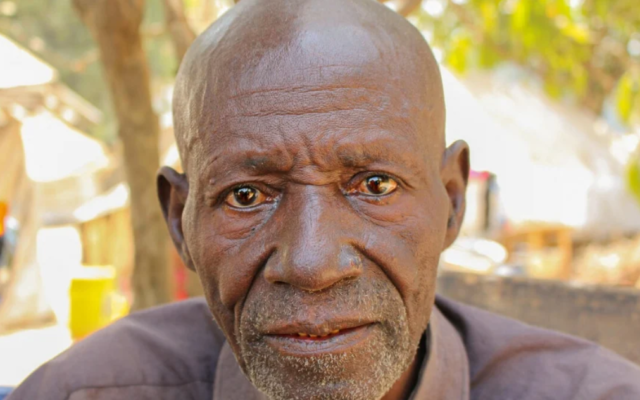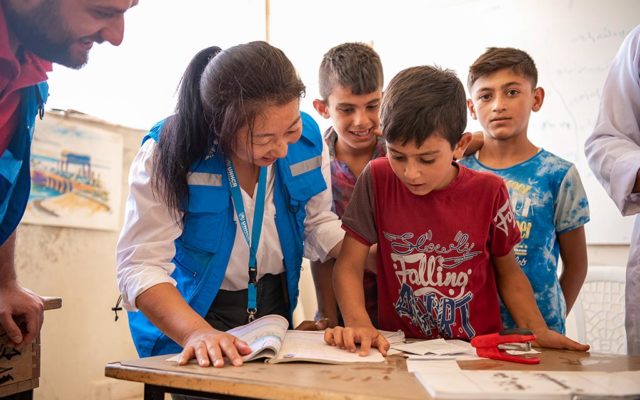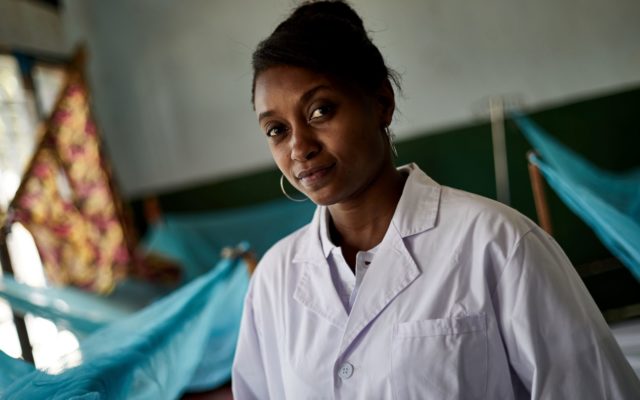What’s happening in Yemen? A Q&A with UNHCR Yemen Representative Jean-Nicolas Beuze
After more than six years of conflict, economic collapse and a recent cholera outbreak, millions of displaced Yemenis are only a step away from famine. UNHCR Yemen Representative Jean-Nicolas Beuze tells us about what’s happening in Yemen…
Six years of fighting in Yemen have driven millions of people from their homes. Hundreds of thousands of internally displaced Yemenis are at heightened risk of food insecurity as livelihoods have been lost to the combined effects of ceaseless violence and the COVID-19 pandemic.
UNHCR Canada spoke with UNHCR Yemen Representative Jean-Nicolas Beuze about the situation on the ground. This is what’s happening in Yemen, right now.
Q: What are the factors that are driving food insecurity in Yemen?
A: The intensifying conflict and the fuel embargo have made the Yemeni economy collapse and prices of food and other commodities skyrocket. Even prior to the COVID-19 pandemic, we assessed that 80 percent of the Yemeni population was relying on humanitarian aid for their daily survival. If it is difficult for Yemeni families to find their bread and butter under these circumstances, you can well imagine that families displaced by the conflict – one out of eight Yemenis – are particularly at risk of hunger.
Having lost their homes and their livelihoods, they struggle to make ends meet. One out of four of these displaced families is headed by a woman, who due to socio-cultural norms, is most of the time deprived of any livelihood opportunity. This is why UNHCR is primarily targeting these displaced families in its response – especially those headed by women, older persons or persons with disabilities.
Being displaced means people are faced with daily impossible choices: to eat or to keep a roof above one family’s head
Q: How is UNHCR helping to address food insecurity right now?
A: Our cash assistance programme targeting the most vulnerable displaced families is a very dignified way of helping Yemenis protect themselves from the famine. We know from our assessments that 97 percent of those receiving our cash use a portion of it to buy food – mostly rice, sometimes onions or tomatoes, and bread.
We also know – and this is extremely worrisome – that without our cash, most families will cut their spending on health care, education and products for newborns. Many parents told us they would stop eating to make sure their children have something. But many told us also that they may have to pull their kids out of school and put them to work or arrange marriages.
Yemen is entering its sixth year of conflict.
Many displaced Yemenis simply cannot meet their basic needs like food, shelter, and medicine. #YemenCantWaitpic.twitter.com/9ym9UsfVmR
— UK for UNHCR (@UNRefugeesUK) March 29, 2021
Q: You have previously described the challenges for refugees and internally displaced people accessing basic essentials during the pandemic, including medical care, hygiene products and running water. How are you helping people in need cope with the ongoing challenges of this public health emergency?
A: Refugees, mainly from Somalia, and local families displaced by the conflict are amongst the poorest in Yemen. When the COVID-19 pandemic hit the country, they were already struggling to buy food, pay rent or send their children to schools. With the slowing down of the economy, they were the first to lose their jobs in the informal sector.
Being displaced means people are faced with daily impossible choices: to eat or to keep a roof above one family’s head. Under such extreme circumstances, buying medicines or soaps can only be deprioritized.
Deaths are a daily occurrence in these communities where other communicable diseases are also spreading, from cholera to malaria. Many have told me that they do not have the means to bring sick relatives to a health facility and would not have the means to pay for medicine. Again, our cash program increases the choices they can make, and 70 percent have told us they use part of it for health care and buying safe drinking water.
____________________________________
This Q&A is the first of a three-part series featuring Yemen Representative Jean-Nicolas Beuze developed by UNHCR Canada.
To donate to help displaced families in Yemen, please visit this page.
For the latest facts and figures on Yemen, visit the UNHCR data portal.




